October 2024

Metal Covenant got some time with the German heavy metal legend Axel Rudi Pell before the band’s show in Stockholm last Thursday.
We’re gonna talk a little about your new record, even though it’s four months old now. Or at least four months old to me. So, tell me about this record, Risen Symbol.
I love it. I think it’s the best one we ever did. (Laughs) What should I say? You know, we started recording last year, at the fourth of December, and we finished the record in mid-January, as far as I remember. We had a break over Christmas and New Year’s Eve, and then we did the mix in the New Year. You know, the surprising thing was when my singer Johnny Gioeli heard the done mix, the already mastered tapes, and he immediately gave me a call, which he never did before, and said, “Axel. I really think this is the best record we have done together?”. I said, “Maybe you’re right. Maybe. I hope.”.
Do you think that there is something on this new album, Risen Symbol, that isn’t on the other records that you have done, that only you are aware of?
Yes. Normally I write a song, “That’s a guitar riff, that’s a verse, pre-chorus, a chorus, a solo.”, and it repeats. But this time, not in all songs, but in a few songs, I have different kinds of rhythms in the song. Different kind of rhythm guitars. You know, they’re repeating themselves every time, so the first part is a different rhythm than the second or the third part. So it’s a little different, yeah. And I got more of an oriental kind of influence, yeah.
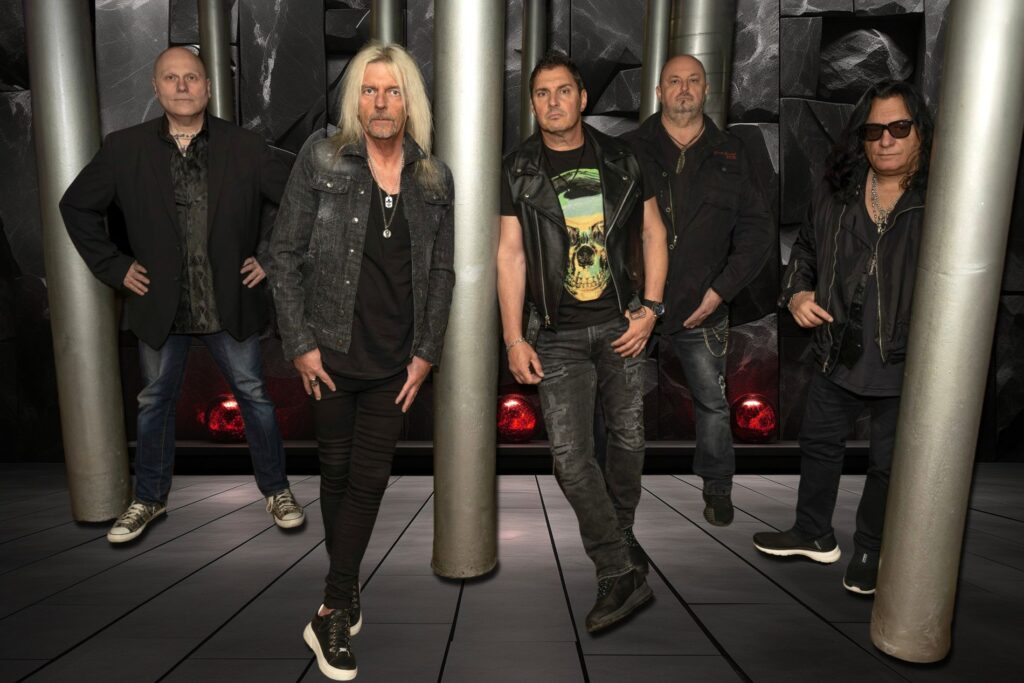
You know, you have, like, defining main riffs in a couple of songs, like in Strong As A Rock, and in Carousel. Those are great riffs. Is it hard when you start to make riffs for a new record, and you think that you have to top those old riffs? Like, is it hard for you to go into that process?
You know what? I don’t sit down in my house, or whatever, and say, “Now I have to write ten new songs.”. I couldn’t do that. I couldn’t be creative or come out just by pressing the button, “Now I have to do it.”. It doesn’t work for me at all. So I’m collecting little bits and pieces, guitar riffs, over a period of several months and years, you know. Like, we were done in the studio, and I’m driving back home with my gear and stuff, and put the guitar back into my house, and maybe after a three-, or four-, or five-day break, I pulled up the guitar again and I played just a bit, and I said, “Wow! This is cool.”. And I recorded it on my cell phone, which I put later on my computer, of course. And I’m always collecting these little bits and pieces. You know, sometimes I’m not able to play the guitar for two weeks because I have to do so many other things. Like doing interviews when a record is out. Blah blah blah, all the time from high noon ‘til late evening, you know. Talking, talking, talking, talking. And I have to do fucking taxes, you know, for the government, “No, I hate this shit.”. And I sometimes have to clean something. But then I pick up the guitar again. It’s not all the time, but sometimes it’ll happen, “Wow! This is a cool riff. I’m recording it.”. And then in the end, I sit down after several months. Probably, it’s around four months before we actually go to the studio to record. I sit down, and I have a big piece of paper, a blank paper, and I listen from idea number one to the latest. Because when I’m recording these little bits and pieces, I never listen back. I only store it, you know. I don’t listen to it. And the real big thing is then to listen to all of these bits. Sometimes it’s like, “Oh, idea number one. I remember it was great.”, and, “Oh, idea number 26. Wow! This is really cool.”. And so I put these little bits and pieces together and make the real songs out of them.
And when you record those little bits and pieces, do you record them all on the same guitar, or do you use different guitars?
Oh, it doesn’t matter. It’s the guitar which is around. You know, I don’t have this special guitar. No, no, no. But I’m doing it without any amplifiers. I’m doing it like an acoustic guitar. You know, with electric guitar, but, like, with no amplification at all, yeah. Just to get the idea, you know. And about four months before we actually go into the studio, when I’m pulling these bits and pieces together, I make demos of it all in my home. I play every instrument before. I have a digital machine, and then first thing is finding the right speed, the right beats, you know, for the song. Then I’m playing the rhythm guitar for the complete song, then I play the bass on it, I play the keyboard on it, and I’m singing with my own shitty voice, you know. And when this is done, I write the lyrics for that song and I sing the lyrics on it with my shitty voice, of course. And then I’m done with that song. And with this demo, I go to the studio, and my engineer puts my demo, which I recorded at home, with all the instrument, into his system. He’s using a Pro Tools system or a Mac. He puts everything in there, and the first one who is appearing is Bobby, the drummer, and he’ll listen to the track. I don’t ever send any demos to the guys. So they are fresh in the studio. I prefer that, you know. Then Bobby comes in, and he says, “Oh yeah, baby. I know exactly what we want, and what you want me to play there.“. You know, it’s very quick.
You said you were singing with your own shitty voice, but now with AI, could it be possible that you sing it, and then you put in Johnny’s voice through AI, you think?
Maybe it’s possible; I don’t know. I’m not used to AI concerning this music thing. I never used it before. Maybe I will in the future, but I don’t think so, because there’s no need. I think it’s faster when I sing it with my own shitty voice, and Johnny knows exactly what I mean, you know. So, it’s no problem.
When you make a record, to what extent do you personally take all the decisions? I mean, do you take, like, 99 percent of the decisions yourself on how a song should be?
Yeah, of course. Yeah, yeah. You know, it’s natural. Sometimes when the magic in the air is right, it works pretty easy when I write a song and say, “Wow. This is cool. Let’s put this in. Let’s put this kind of thing in.”. And it works out cool. Sometimes I’m sitting there for two days, three days, four days, “No. It’s okay, but it’s missing something.”. And I leave it alone for another two or three days, or whatever. I do different things, and then I retry and say, “Yeah. Now I have the idea.”, and then I finish that one. Pretty easy, normally, yeah.
And tell me about the Risen Symbol artwork, because you’re using a pyramid like you did, like, 28 years ago.
Yeah, it was in ‘96, Black Moon Pyramid, the record. 1996 it was. I remember that. Yeah, because, you know, on the Black Moon Pyramid record, there’s only the top of the pyramid, and there’s some crazy birds flying around. But when I wrote this song, I felt this oriental kind of feeling. I said, “Well, maybe it’s a good idea to have a pyramid back on the cover, but now in complete.”. You know, different kind of looks. Maybe a little red, and whatever, you know. And this cover, I created by myself with AI. You know, I did that, you know, on the internet, and it took me several weeks to find out how to make it, you know. But then the outcome was great. You know, I said, “Whoa. That’s just fucking awesome.”.
You know, some fans, they say that when Axel Rudi Pell is putting out a new album, it’s usually similar to stuff that you have done before. In what way do you see such a statement?
You know, sometimes the people say that I found my own style, which is right. But it’s not always the same record, you know. Somebody was saying, “You use the same formula. You’re starting with a fast song, then you got a commercial song, and then the ballad, of course, is number five, or six, or whatever.”. But it’s coming naturally out of my mind. What can I do, you know? I’m proud that I found my own style of writing and creating the songs, you know. If I would try something different, everybody would come in, “Oh, what’s this shit he’s now doing? This is bad. Stick to your formula. What’s this different thing? We don’t like it at all.”. But the people know that the music I’m creating is coming from my heart and soul. You know, doing other things, which would probably change the style a bit, then I would be untrue to myself. I can’t do that, because this is the music I like the most, you know. And maybe when the people think, “Yeah, it’s the same as the last one.”, what can I say? “Kiss my ass, motherfucker.”, you know. (Laughs) Whatever. But anyway, every record is a little different, of course.
And the reason I brought this up is because a lot of artists, experienced artists, tend to after, like, eight, nine, or ten records, do something completely different, which usually isn’t as good as the first idea.
That’s right. That’s the other aspect. I totally agree with you. I was a little surprised, a long time ago, when the melodic rock tended to be out, and the grunge scene came up, in the beginning of the nineties. Some of the melodic rock bands changed. You know, “Oh, we wanna jump on that train because it’s more successful now.”, and they sucked, and they failed. See, “It’s your fault, you know. Stick to your guns, you know.”. I never trusted and believed in any new trend, or whatever. No, I don’t need it.
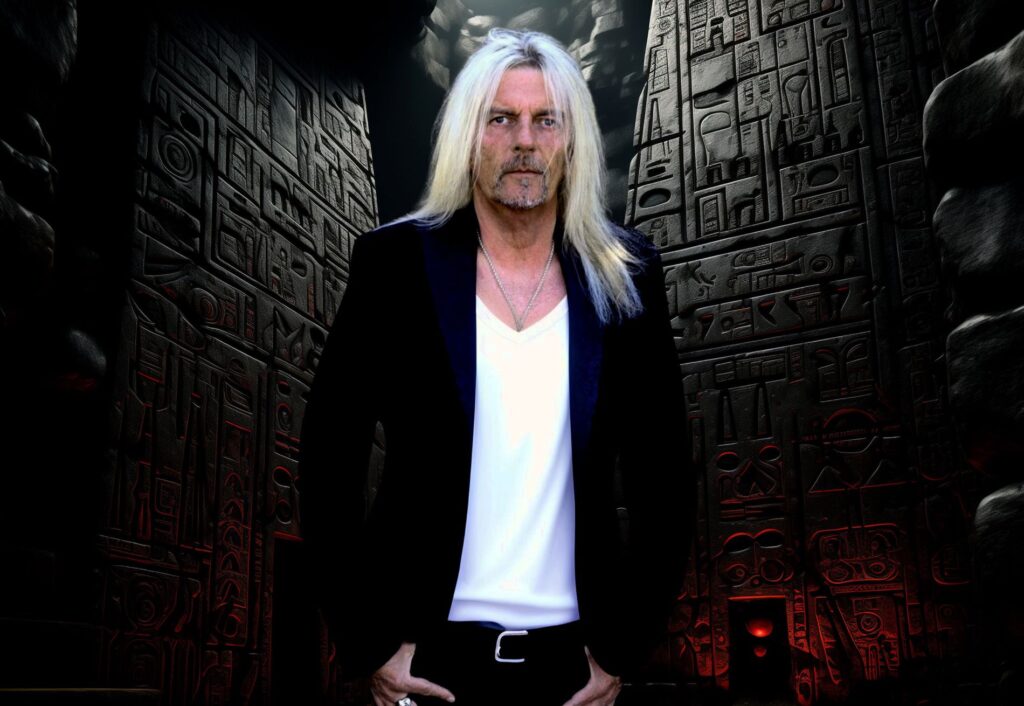
You know, with every type of record included, even if it’s a studio album, a compilation, a live record, you have done over 40 albums. Is it hard to come up with a title for a record nowadays?
No, no, no. You know, when I look at the cover, first I have the idea for an artwork, and then I say, “Hm. Okay, the title could be…”, and then I make a little note of whatever comes to my mind.
Between every studio album you release, there is always something in between. Either it’s a live album, sometimes a compilation, a ballad album, or whatever. Why don’t you just stick to making the regular studio albums instead? Why all these things in between?
Because the record company always says, “It’s too early.”. If I would be releasing too many own songs, instead of doing cover versions, or only ballads, the record company always says, “Oh, it’s too early. That’s too much ARP songs.”. But now they agreed, so I don’t have any album in between next year. We’re recording the next studio album next year, but it will be out, I think around January 2026. Just a little earlier than expected.
Do you think that there could be a third Diamonds Unlocked album?
Definitely. Yes. I have that on my mind. I already wrote down some covers which I’d like to cover. I think I have four or five written down so far. I have to speak to the other guys. If they like them or not; I don’t know. (Laughs)
What do you think is the greatest thing about doing cover versions of other people’s songs?
Because, you know, sometimes it happens that we’re changing the arrangement of a song. Like, for example, on the first cover record we did in 2007, we took Love Gun by Kiss, and made a ballad out of it. Especially Kiss songs, you have to ask the original composers, because it’s a different kind of song now, you know. I sent a demo to my publishing company, and they sent it to the publishing company of Kiss, and they sent it to the writer, to Paul Stanley, and he gave us his thumbs-up, “Yeah, do it. It’s great. We love it.”. And that’s why we did it, you know. You know, I like to have songs not sounding the same as the original. Make it a little bit different. Yeah. I love that.
Does it also have a lot to do with where your influences come from?
No. But you know, sometimes I’m not doing especially a Deep Purple cover song, but the people know that I’m a huge Deep Purple and Rainbow fan. I think we did one Rainbow song, or two, whatever. But not more. You know, normally they say, “Oh, why don’t you do Stargazer?”. I said, “There’s no need to, because you can’t do it better than the original. And the same with Led Zeppelin. I would never do a cover version of Stairway To Heaven. I never would do that, because you can’t do it better.
Will there at some point be another live album, or a live video, out from ARP?
I don’t think so, because the record company hates it. You know, the last live album came out five years ago. XXX Live Anniversary. It sold okay, but, you know, the record company said, “Not another live album, because you have so many live DVDs and live albums, so it’s enough.”. Maybe at the end of my career; I don’t know. Maybe in 20 or 30 years. Woah. (Laughs)
Have you released any box, like a huge compilation?
We can’t do it, because, you know, the problem is that SPV sold the back catalog, in 2014, as far as I remember, to a different company. So there won’t be any compilation because the rights are gone. You know, so I can’t do what I want. Maybe when both fucking companies are talking, I’ll say, “Okay, let’s stick together.”. Maybe then at some point, but not now.
A couple of days ago, I looked at a setlist from your live show, and I saw that you guys are playing two cover songs, but why don’t you just stick to the band’s original songs?
Because, you know, Hallelujah is a must. You know, we never played it live when it came out. It has a following on YouTube. I think 16,000,000 now, or whatever. And the people kept asking for it. They said, “Why don’t you play Hallelujah? It’s your biggest fucking hit. It’s so massive.”. But we’re only doing a short version of it. Johnny is singing that, and then just the keyboards. No drums, no guitar, no bass on it. Just a short version. And then Beautiful Day. We did that because we were missing one song in the setlist. We started the tour actually in the middle of July in Bulgaria. That was a very short show, because we weren’t allowed to have a full show on the festival. And then we played a full show in Germany somewhere. I think in the city of Augsburg. It doesn’t matter anyway. And we played, and the other guys came and said, “Hey. We’re missing one song. It’s a little too short.”. The Americans said, “Oh, it’s too long.”, you know. But, “No, no, no. The people wanna hear more.”. And we said, “What about this Beautiful Day song?”. We never played that live, and we covered it in 2007. We said, “Yeah. Let’s give it a try.”, and we rehearsed it, and said, “Yeah, great, love that.”. And the people love it, so.
And when I looked at that setlist, I saw that Casbah is the oldest song in the set. That’s a song from your fourth album, Between The Walls, and it’s very unusual for bands to not play songs from their first, second or third album. How come you don’t play the old songs now?
Because, you know, it’s way too long. I mean, we have to play four or five hours then, you know. And the songs are way too old now. For example, from the second album, we played Nasty Reputation, not on the last tour, but on the tour before that. I think we overplayed that track, you know. In the beginning, we played a few more tracks from Nasty Reputation. But it’s over. It’s too old now. I think we have better songs.
Yeah, you have so many now. But, well, if I could pick, I would have picked a couple of songs from the first album, Wild Obsession.
From the first album? Jesus, man. No, no.
Snake Eyes, I love.
Noo.
Cold As Ice is great.
Oh, man.
Hear You Calling Me.
What? Hear You Calling Me? Well…
Those three. I love those songs. But you know, I was, like, 15 years old when I heard them for the first time, so they’re somewhere deep within me.
Yeah, I know what you mean. Some great songs, but we can’t play them all.
And of course everyone has an opinion.
That’s right. And we can’t leave some classic tracks out. When we don’t play Fool Fool, we don’t play Rock The Nation, we don’t play Masquerade Ball, they are like, “Why didn’t you play that?”, and they are right. And every time it’s the same. It gets worse because there are more records.
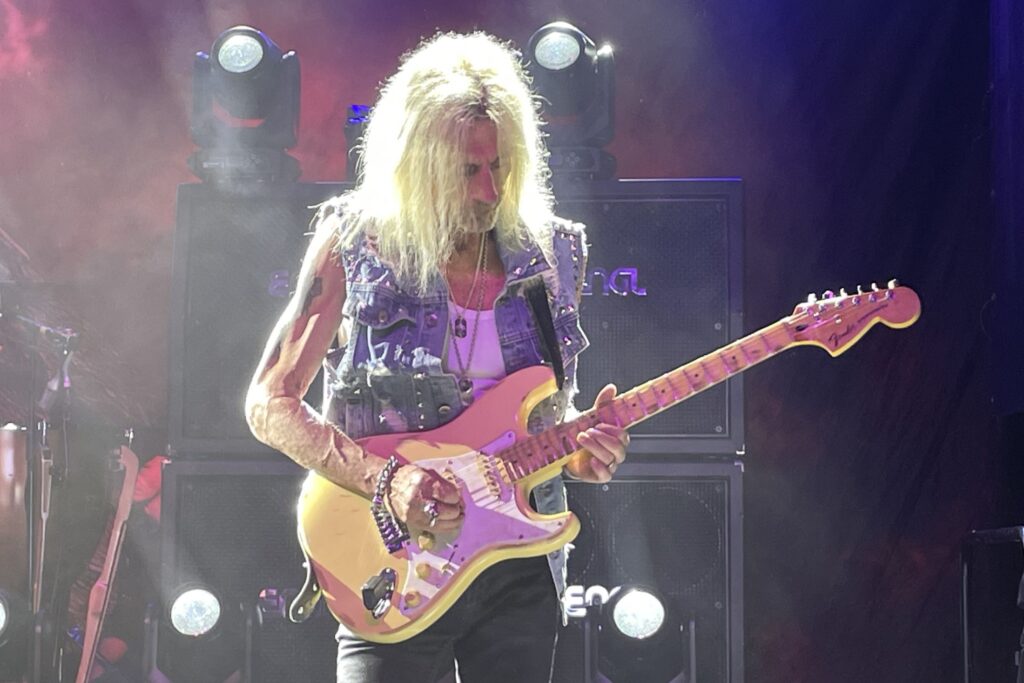
You know, Volker has been by your side for pretty much 40 years. A little bit on and off there in the Steeler days. But still, do you think there is a really special connection, or a bond, between you guys since you have been together for such a long time?
I mean, I pay them big money, you know. (Laughs) You know, there’s no problem. I mean, Johnny is now in the band since 26 years. Ferdy too. Bobby is a new guy. He’s 11 years now with us, you know. So, the chemistry in the band is right. Because, you know, there’s no problems. I mean, everybody lives in different parts of the world. The two Americans over there. And Ferdy lives, like, two and a half hours in the car away from me. Volker lives, like, half an hour away from me, but we’re not seeing each other very often. We’re not a band, you know, living in the same city, where we have to rehearse three or four times a week, and see each other that often. Wouldn’t work with those guys. I’m sure it wouldn’t work, because after maybe two or three weeks… (Makes a grumpy noise), you know. So we have fun when we see each other in the studio for recording, or when we’re rehearsing for the live show, like, “Hey. How are you?”. And everybody is telling different stories. We have so much fun. We are one big happy family, so to say. Really; I’m not kidding. And the crew, we love each other. Everything is perfect.
As you said, it was 11 years ago that Bobby took over from Mike Terrana. Does time just fly?
Just fly, very fast. I can’t believe it, you know. What can I do? I don’t know. Nothing.
What was it like bringing Bobby in when Mike had been the drummer for about 14 years before him?
You know, Mike Terrana, the guy before, he was a little out of his mind. You know, he had too many things. Yeah, he had to leave ARP because he was in Tarja Turunen’s band at the same time. It always worked out. When Tarja was on the road, we are not touring. When we are touring, Tarja is not on the road. We always fixed the problem. And then our tour was booked, and Mike wrote it in his schedule. Yeah, no problem at all. And then he gave me a call. It was, like, a couple of weeks before, and, “Axel. I can’t do the tour.”. I said, “Are you kidding? For what reason?”, and he said, “Yeah, I’m touring with Tarja.”. I said, “Hey! We were the first. You wrote it in the schedule.”, and he said, ”Yeah, I know, but I overlooked it, and now I’m playing with Tarja.”. I said, “Okay. Fuck you. You’re out.”. Fair enough, you know. And Bobby. You know, I never had an audition for any other drummer. A good friend of mine was in personal contact with Bobby. He had his phone number and his e-mail address. I knew it because he knew him from the Rainbow days, you know. His name is Horst. And I said, “Horst. Can you give me his e-mail address?”. He said, “Of course.”. In the e-mail I said, “I’m Axel Rudi Pell.”, and I sent him a few Mp3s, and YouTube links, and whatever. And he said to me, “Hey man, that’s cool.”. And of course he phoned my friend, and said, “What’s this guy like? Is he a good guy? Can I trust him?”. So he showed up, and we got in touch. Perfect.
My final question is a question I ask a lot of artists. And the question is: When people look back at Axel Rudi Pell one day, what do you want them to see?
Oh, I don’t know. (Laughs) A guitar player who’s probably able to write a few good songs. That’s it. Hopefully, it will stick in the people’s heads forever and ever.
By Tobbe – Published October 28th, 2024

Metal Covenant träffade Tungstens Karl Johansson på Skogsröjet för att prata om nya albumet The Grand Inferno.
Berätta lite fritt om The Grand Inferno.
Nya plattan är väl, jag skulle säga, mer episk än de föregående plattorna på ett sätt. De andra är ju också episka, men denna är ju liksom extra på något sätt. Så här mer dynamisk, mer symfonier, mer lite känsla i låtarna. Speciellt titelspåret, The Grand Inferno, är en av mina favoriter, för det är typ en musikal, kan man säga, i en låt. Den börjar väldigt lugnt, liksom och bygger upp. Det låter som en teaterlåt på något sätt.
Låten Vantablack härrör från 2016 ungefär. Hur kom den idén åter in i, nu, Tungsten istället?
Det var vår fansidas president Patrik Reos som hittade den igen, för vi hade ju glömt bort att den fanns, konstigt nog. Han hittade den, ”Varför har ni inte släppt den igen?” och så tänkte vi ”Ja, det kanske man borde göra ändå. Det är ändå en jäkligt cool låt.”. Alltså så här speciell liksom. Den är ju väldigt Rammstein-influerad liksom, och just det här enkla ”Vanta, vanta.”.
Hur fick ni då den att liksom passa in i det här nya episka som du beskrev?
Den är nyinspelad, med lite nyare effekter, och vi gjorde den med mer symfonier, istället för bara industriella syntar och sådant, och så körde vi lite mer så här fioler och kör och lite sådant där så att den passade liksom.
Har du någon annan låt du skulle vilja framhäva, som är lite speciell på den här skivan?
Det finns två stycken jag kan välja. En är den fjärde singeln, Lullaby. Den är en av mina favoriter. Den är också väldigt speciell. Det är en väldigt typisk Tungsten-låt på något sätt, men ändå inte, för där har vi en tjejröst som sjunger hela refrängen och så har vi tagit ”Hush little baby, don’t say a word.” och gjort om texten till en egen version. Så den är rätt cool på grund av det liksom. Sedan har vi en annan låt som heter Sound Of A Violin, som inte kommer vara en singel, som är näst sista låten på plattan, som är också väldigt speciell. Den handlar om Näcken, i svensk folklore. Så vi gjorde en liten låt om honom. Det är lite som vår låt The Fairies Dance 2, kan man säga. Väldigt liksom så här melankolisk och mystisk.
Har ni några fler gamla idéer eller är allt annat nyskrivet?
Jag ska tänka här nu, hur skivan är. (Paus) Jag tror det bara är Vantablack som är från Strokkur på denna skiva. Sedan har vi lite idéer på nästa skiva. Det finns lite andra Strokkur-låtar som man kanske ska göra om och så, tänkte vi. Så vi har lite idéer om att ha med mer Strokkur-låtar.
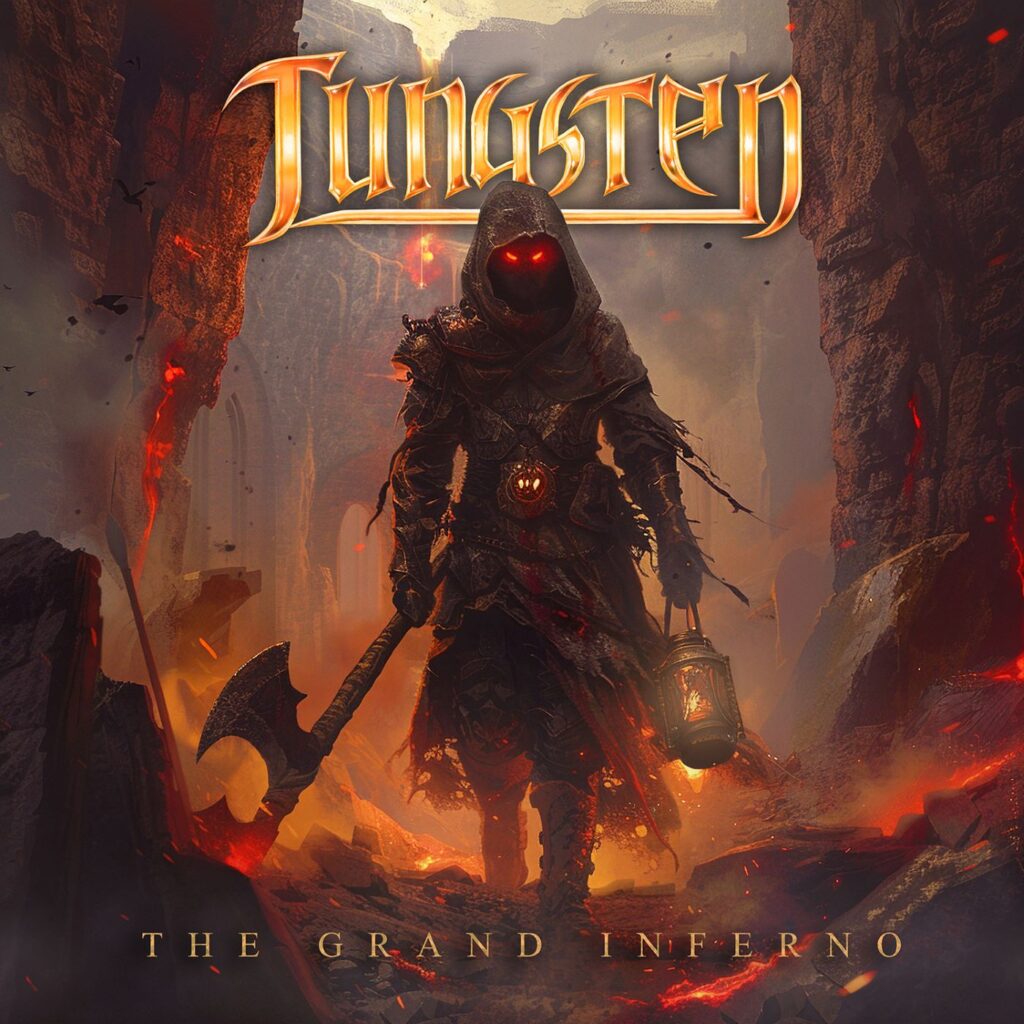
Många skivor blir lite mer episka när band kommer in en bit i karriären. Måste man utvecklas?
Alltså, vi kör bara det vi känner för på något sätt, bara det inte blir helt så här spretigt liksom. Det måste ju ha en röd tråd. Och så brukar vi utveckla kanske lite mer åt något håll, att ”Okej, den här låten kanske kan bli lite mer aggressiv eller lite mer episk.”. Så vi brukar ha en grund och ”Okej, här är en låt. Hur kan vi göra den här mer åt det här hållet?”. I och med att vi är fyra kockar i bandet så kan det vara väldigt mycket så, för att få en sammanfattning av en låt alltid. Alla vi har ju helt olika smaker i musik. Det är därför Tungsten-soundet är så speciellt. Vi blandar liksom allas influenser på något sätt. Jag, till exempel, är ju mer industriell, gotisk, elektronisk musik. Niklas, gitarristen, är ju mer progressiv Meshuggah-musiker liksom. Och så har vi farsan då, Anders, som är mer old-school med Deep Purple, Yngwie och HammerFall. Och så har vi Mike som är en lite mer progressiv sångare. Så det blir ju liksom en mix av allt möjligt som blir en låt.
Är det du och Niklas som börjar skriva låtarna och så får sångaren och trummisen, de äldre herrarna, bygga på?
Med låtskriviet är det framför allt jag och Niklas. För mig funkar det så att jag alltid skriver syntarna först, så jag liksom färgar låtarna som en slags symfoni, med maskinljud och symfoniljud, och ”Det här kan låta coolt.” och sedan lägger jag gitarrer och sådant på efteråt. Jag tror Niklas kör tvärtom. Jag tror han börjar med instrumenten. Sedan brukar han köra någon folkmelodi och sådant. Sedan brukar det vara så att vi gör guide-sång till Mike, som han liksom gör sin grej på, som ”Okej, här är grunden som du ska sjunga, och om du känner för att göra något speciellt, färga det med din grej.”. Och sedan med Anders också, att ”Okej, vi kan göra ett sådant här fill här.”.
Blir det mycket att ni får bromsa varandra också?
Ja, extremt mycket. Som sagt, alla vi fyra vill ju ha sitt liksom, plus att det är familj också på det. Det brukar vara liksom (Karl uttrycker genom diverse läten och gester att åsikterna kolliderar.). Men det som gör det lättare då är att det är familj också, så att man kommer över det lättare. Liksom familjebråk och sedan nästa dag är det som ingenting. Men det är väldigt sällan just det händer. Det var mer när vi var yngre, som när vi började Tungsten, när jag och Niklas var i 20-årsåldern.
Ja, när ni startade var ni i 20-årsåldern och nu är ni i 30-årsålden, så det är ett oerhört stort kliv i livet man tar på de 10 åren. Nu är ni ju vuxna på riktigt. Jag kan tänka mig att det blir ännu svårare att lyssna på de äldre när man kan mer och mer själv.
O ja, verkligen. Som jag och Niklas brukar säga: Jag och Niklas är ju föräldrarna, de vuxna i bandet, konstigt nog. (Skratt) Medan Mike och Anders är mer vilda, liksom mer spontana. De är lite barnen liksom ibland och jag och Niklas är mer bara ”Nä, lugna dig. Nu gör vi det här.”.
Men Anders, och även hans brorsa Jens, kommer ju från en helt annan tid av hårdrocken, liksom influenser från 70-talet och började spela in på riktigt i början av 80-talet. Musik var ju på ett annat sätt då. Hela musikindustrin var ju helt annorlunda mot nu.
Ja, verkligen. Det farsan brukar säga ibland, för han är ju fortfarande kvar där, är att ”Fan, vad lugnt det är nu.”, för han har sagt att när de körde var det liksom krig hela tiden, som att kasta saker och mycket förstörelse och sådant liksom. (Skratt) Nu är det som helt annat. Vi millennials, som vi kallar oss, är liksom mer laid back och mer chill, lugna liksom, så vi får liksom bromsa dem ibland, ”Nej, det gäller inte så här längre.”.
Om vi återgår till plattan. Hur och var har ni spelat in den?
Det är i hemmastudios, allihop. Det brukar vara så att jag sitter och gör alla synt-tracks och sådant, hemma liksom, på min dator. Ibland brukar jag skicka färdiga syntarrangemang till Niklas och så brukar han lägga gitarrer och sådant, i låtskriveriet i alla fall. Men när vi spelar in det: Trummorna är i farsans Der Bunker studio. Han har liksom en studio i huset som han spelar in i. Och sedan gitarren och basen brukar vara hos Niklas, i hans hemmastudio, Harm Studios, som det heter, eller han kallar det. Och Mike kör hemma i sitt sovrum, tror jag. (Skratt) In mot väggen liksom; kondensatormick. Och så skickar vi bara filerna till varandra och så. Det är Niklas som producerar och mixar alla skivorna, så han utvecklas ju hela tiden. Just den här skivan låter mycket bättre än de andra också, tycker jag. Niklas satt hela 2023 och lärde sig massa nya liksom pluggar och så här. Han satt hela nätter och försökte få det att låta bättre. Så den här skivan låter bättre produktionsmässigt. På föregångarna är det ju bra, men det här är ännu bättre, tycker vi nu.
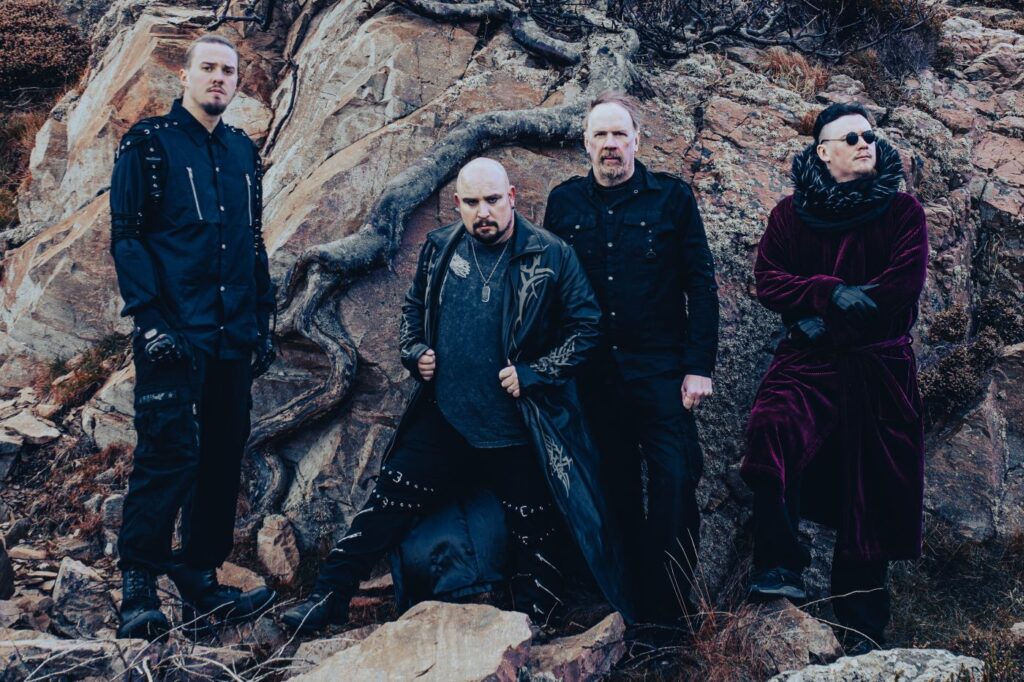
Det här är fjärde plattan på fem år. Det är väldigt produktivt. Hur håller ni igång det? Det är mycket mer än de flesta andra band gör.
Jag gillar ju att skriva låtar. Jag är låtskrivare. Jag har gått kurs i det och sådant till och med. Det är ju en slags konst ju. Det är ju som att folk målar liksom på något sätt, så att det kommer bara, ”Okej, nu har jag en idé.”. En annan sjuk grej är också att jag alltid försöker skriva låtar på udda ställen. Förra helgen hade vi en stuga där jag satt ute på bryggan och skrev två låtar, så här med datorn liksom. Och så var det solnedgång, så jag försökte få hela atmosfären och sådant där. Under pandemin släppte vi ju två skivor på två år, men det var också för att det var pandemin då, så man hade mycket tid. Sedan skrev vi en skiva under pandemin också, vilket var Bliss-skivan då. Det är därför den är lite mörkare och aggressivare. Under pandemin hade man mycket mörker i sig och man trodde att allt skulle gå under och sådant. Så det var mycket apokalypstankar och mycket liksom hat och sådant som kom då. We Will Rise, alltså första skivan då, släpptes ju precis innan pandemin kom, så vi hann bara spela två gig. Och när pandemin kom, man trodde ju att det var liksom slutet ett tag där och sedan började det ju lugna sig mer och mer ju. Tundra-skivan, den andra skivan, skrev vi lite typ samtidigt som We Will Rise släpptes och sedan in över pandemin där. Sedan skrev vi hela Bliss-skivan under hela pandemiåret. The Grand Inferno, fyran, den skrev vi förra året mycket. Vi brukar köra, som många band gör, att vartannat år skriver man, vartannat kör man skivsläpp, och så börjar man på nästa skiva liksom, så man får det rullande. Många band har ju en stor paus mellan skivorna och då glöms de ju bort, tänker jag liksom. Så vi tänker att man måste hålla det vid liv på något sätt, men också för att det är kul framför allt, att skriva låtar och så.
Inga medlemsbyten på åtta år. Det är unikt. Trots att ni är familj, ja förutom Mike då. Men hur gör ni för att ändå hålla ihop?
Det är mycket så här psykologiska grejer. (Skratt) Men ändå, när vi går upp på scenen så funkar vi alltid bra ihop. Framför allt jag och brorsan och farsan då. Vi har lite samma häng och så i och med att vi är släkt med samma DNA och sådant, så när vi lirar ihop så låter det alltid coolt på något sätt. Men det har varit mycket… Som jag sa innan, det blir ju så när man är familj också, och alla vill ju sitt. Mike har väl fått stå ut rätt mycket med oss också liksom. Men det funkar alltid, på något sätt.
Apropå familj. Hur är er mamma, om man får fråga, mot er tre musiker? Nu vet jag inte om Anders och hon är ihop längre.
De är skilda, sedan 2007 tror jag. Men hon är jättestolt över oss. Hon brukar supporta allt hon kan. Hon är inte musiker, men hon är musikalisk som satan däremot. Hon skriver böcker och håller på med en sådan här matvagn och sådant. Hon var med i Mästerkocken faktiskt, första säsongen. Hon kom som nummer 6, tror jag. Vi håller på med mat mycket också, så det är väl från hennes sida då.
Ni spelade med Hulkoff tidigare i sommar. Gör ni det fortfarande, alla tre?
Nä, vi gjorde ett gig på Sweden Rock. Hulkoff väljer ju de som är tillgängliga, kan man säga. Jag har känt Hulkoff rätt längre nu. Jag var ju med på Sabaton-rundorna till exempel. Så jag är med om jag kan. Så om jag kan gigga så är jag liksom standardbasisten, tror jag han sa. Men om han giggar så är det ju vi, om vi kan då och inte har Tungsten-grejer.
Gör ni något annat i musikväg just nu?
Jag och Niklas har ju ett progressivt metalband som heter Harkla, som vi håller på med på sidan om lite grann, som ett projekt liksom. Det låter lite som Meshuggah och Vildhjarta, där jag growlar och så gör han all musik. Men utöver det så är det inte så mycket. Jag har haft massa gamla band och sådant, som jag inte håller på längre med. Lite sådana här gotiska, new-wave metalband har jag hållit på med, men utöver det är det inte så mycket.
Provat runt lite alltså.
Ja, precis. Sedan var Tungsten det som lyckades, kan man säga. Så då var det all, 100 procent, fokus på det liksom.
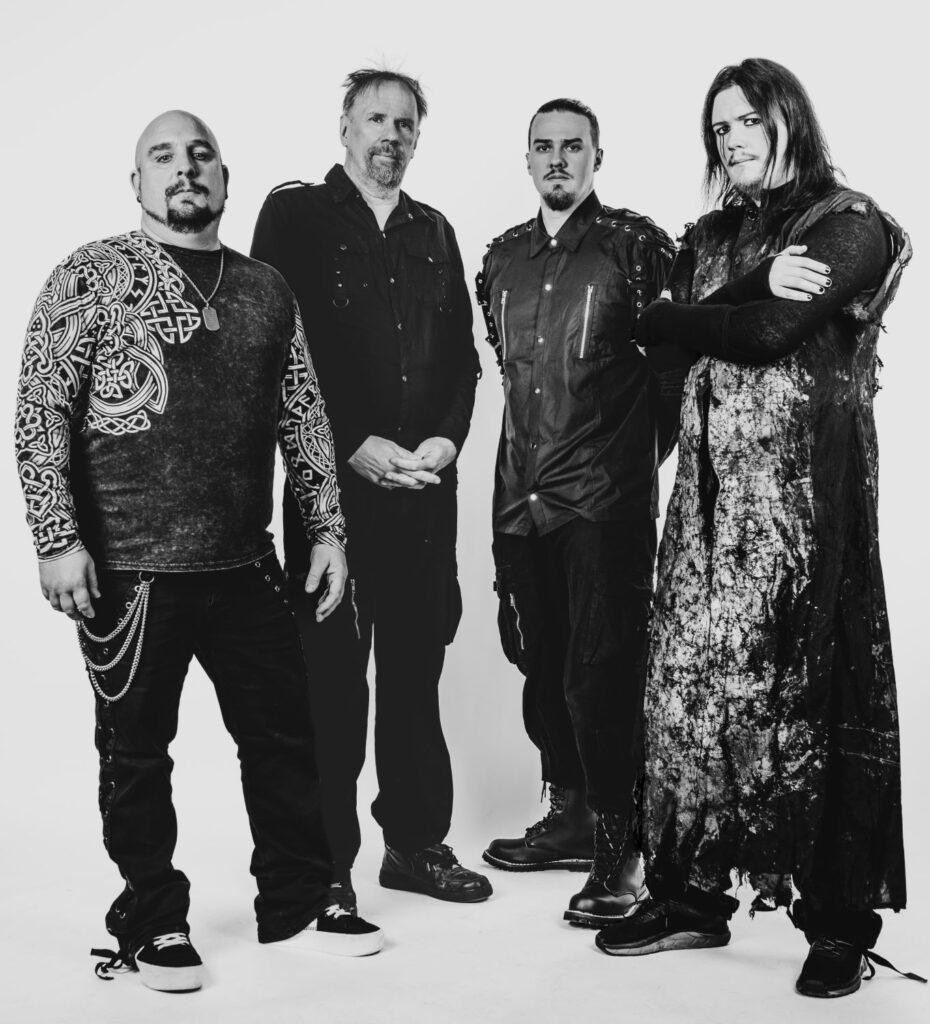
Känner du att det finns en framtid att kunna livnära sig på det här?
Man hoppas på det. Det är liksom drömmen, på något sätt, att man livnär sig på musik. Sedan hur mycket det är, för mig spelar det ingen roll. Bara att man kan göra det är liksom framför allt viktigt för mig. När man kan livnära sig livet ut på musik, alltså det behöver inte vara mycket, men att det går, då har man liksom gjort rätt. Just nu är det ju inte världens bästa ekonomi i det. Det är väldigt så här existensminimumgrejen, men det går liksom ibland.
Vad gör du utanför musiken?
Inte jättemycket alltså direkt. Det är fritidsaktiviteter typ. Spelar mycket och sådant, men annars är det inte så mycket. Jag höll på mycket med studier och sådant förut, men utöver det är det inte så mycket just nu. Det är väl mer fokus på låtskriveri. Just nu är det låtskriveri för skiva 5. Det håller vi på mycket med nu. Vi får se hur det blir.
Vad är det bästa med ditt liv just nu?
Det är nog att kunna göra sådant här. Alltså, lira live med sitt eget band. Alltså, att det har kommit så långt att det liksom känns som det kan lyckas nu. Det är det bästa, absolut. Liksom, nu äntligen, när man är 30. Många säger ju att 30 är den gyllene åldern. Att bara kunna få spela live och framför allt se publikens reaktioner på ens låtar. Det är det absolut bästa. Det är ju därför man gör detta ju, framför allt. Att folk blir så påverkade av ens texter och musik och sådant.
Har ni börjat boka in några turnéer nu efter skivsläppet?
Vi ska nog kolla lite på det. Vi har precis skrivit på med All Things Live. Så vi ska ha möte med dem och kolla lite grejer. Så förhoppningsvis så kommer det mer grejer 2025.
Av Tobbe – Publicerad 22:a oktober 2024
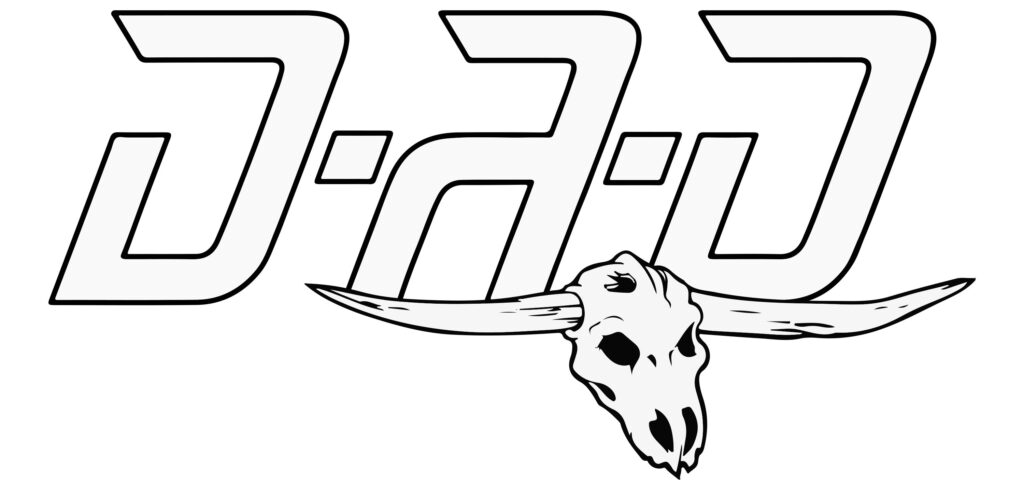
Metal Covenant had a chat with bassist Stig Pedersen and drummer Laust Sonne, as the Danish rock outfit D-A-D came to Stockholm for a little event the day before the new album Speed Of Darkness was out.
Remember that Stig is a humorous guy and that all of his answers must not be taken too seriously.
Your new album Speed Of Darkness I think is melodically closer to the old style of D-A-D than it is to the newer sound of D-A-D. So, what are your thoughts when I say those words to you?
Laust: I agree. I think that the melody is definitely back, more on this album than it has been for many albums. We’ve been more like bluesy, riffy, and now it’s also riffy, but more melodic than it has been for a long time.
When I listen to the album, I find a little bit of everything, like ballads, some heavy song, a little bit of a punkish vibe sometimes, and regular rock songs as well. Was that intentional, to have a great variety of songs?
Stig: Yeah, we had a lot of material. We had, like, 26 songs, or something, and we chose only crème de la crème. The top, yeah. From the top shelf.
Laust: And of course you wanna make an album that’s, like, diverse and, you know, varied, but also have like a silver thread lining (!) going through it, hopefully. (Laughs) But we write a lot of songs, so we really have a lot to pick from, and if you’re lucky you make a great album.
Could any of those leftover songs come out as singles in the coming years before another album comes out in, like, five years?
Stig: I think one or two have made it to the Japanese edition, ‘cause they always want some extra material. But as we did before. We did this triple album with outtakes and stupid, stupid stuff. So maybe we’ll release it.
Laust: Yeah, maybe. Or maybe on Record Store Day there’ll be a single out. One or two songs, yeah.
When I say that the album sounds a little bit old style, that is on a lot of occasions especially because of the tone of the guitar. Did Jacob work a hell of a lot on the guitar tone on this album?
Stig: Jacob always takes his time. He’s very thorough, yeah.
Laust: He takes his time, yes. I think it’s maybe more twang and country style than it has been on the latest albums, which was, like, a trademark in the old days. So he brought that back a little bit, because the songs are more inviting to the twang guitar. You know, there really haven’t been a lot of songs where he could play that kind of style. But now they’re back.
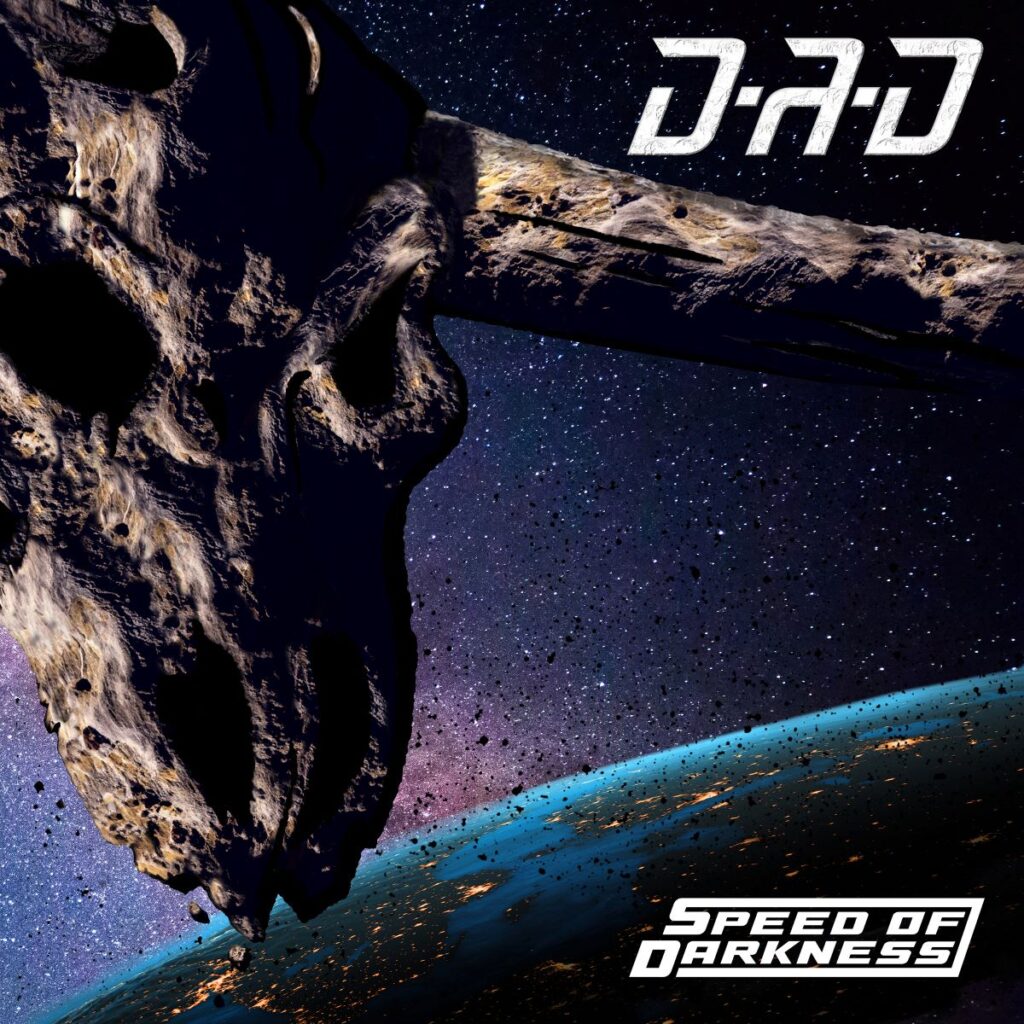
Did you guys have a specific thing that you wanted to come out with on this album, in terms of your drum sound or in terms of your bass playing?
Laust: Well, we tried a new thing this time. We went to a producer called Jacob Hansen, who’s done Volbeat, amongst other bands, and he has a really great studio down in Southern Denmark. I said, like, “Let’s try this. It might not work, but let’s try it.”. And he just did the most amazing drum sound. So for me it’s the best sounding album, in terms of drums, that I have ever been on with D-A-D. So I’m very happy. And you always start out with the drums, so it kind of set the bar for the rest of the album to sound really good as well. So Stig had to work hard, Jacob had to work hard, and Jesper had to work hard, because I had to work hard.
So what can you say about your bass tone on the album?
Stig: Nothing has changed. It’s the same, I’m afraid. It’s the same bass I’ve been using for the last albums.
Laust: Which one is your favorite studio bass?
Stig: I cannot say that. Sorry. No, it’s the same that I play with live. You know, the Sandberg plexiglass bass, which is incredibly good sounding. So don’t change a winner. (Shouts:) Don’t change horses in the middle of the stream.
What does a new album mean to you guys, now in a time where most stuff has gone digital?
Stig: We just released the 40-year anniversary double album, and have been on a tour playing all this old stuff, so I think, especially for the singer, it’s very good to have some new adventures, so we don’t end up like many bands who are as old as we are. They end up doing all the hits and the old evergreen show, you know. So now it’s, like, brand-new, and we have to learn new stuff, so it’s a challenge for the band, which I think is really good and healthy.
So what is the hardest part of convincing the audience that the new songs are as good as the old stuff?
Laust: Well, you have to play them a lot. You have to play them many, many, many times to make it a classic, otherwise they’re just gonna go out with the garbage. So we have to, as a band, insist on that these new songs are great, and, “We’re gonna keep on playing them until you accept them as classics.”. So that’s our job, to make them classics, really.
Stig: But when we play live, if you look at the setlists, we have, like, at least two songs from each album. And this is album number 13, so we have more than 200 songs to choose from. And that’s nice, because we have two or three sets, which are all audience favorites, that we can choose from. So when we tour a lot, we don’t go crazy playing the same over and over and over.
A difficult thing for bands seems to be playing songs from the second to last album, like in this case from A Prayer For The Loud.
Laust: Yeah, those songs are out at the moment. I mean, I really love playing Scare Yourself, and I love Lawrence Of Suburbia, and I love to play A Prayer For The Loud, but now it’s the new album, and then we will see which songs will fit back in the setlist a few years down the line, when we finish playing on the new album.
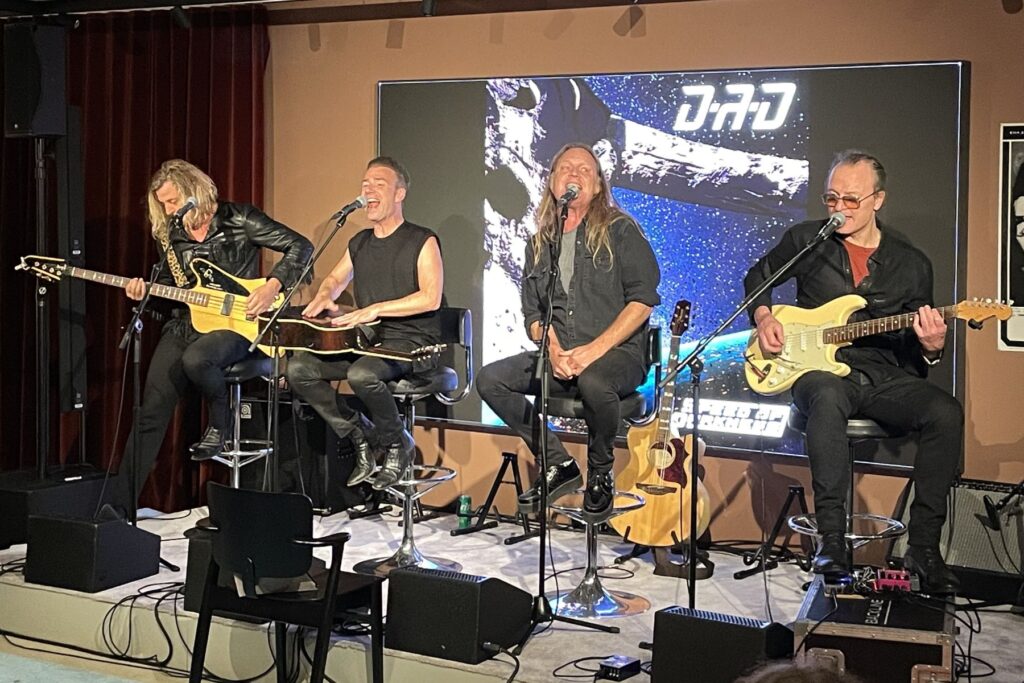
Both of you guys have a little bit different stage clothes than the usual rockers. Who designs your outfits on stage and album covers?
Stig: That’s a personal thing.
Laust: That’s a very personal thing, and nobody can say anything. We have decided that you can’t really discuss the outfit. Everybody has the right to wear whatever they want, really.
Did you guys always, since you were young, love that kind of clothes with strong colors?
Stig: You know, it was from the punk days. It was very much about uniformity. Bands like New York Dolls and Johnny Thunders And The Heartbreakers were for me very trendsetting. In the beginning D-A-D was cow-punk, like a big-city guy with his cowboy hat on. And we were before our time, and I think the people in Sweden and Norway immediately picked up on that. They were faster than Danish people to see that image. But then, as time went on, because this is 40 years ago, all kinds of references came from David Bowie and all the big dressers in music history. But when we played in China and Russia, people were just staring at us, like, “What the fuck? What are they doing? Grown-up people running around with make-up on in that kind of clothes.”. I found out that they didn’t have any reference. They didn’t know about Keith Richards, or anything, you know.
When you’re just a regular bloke on the streets back home, what kind of outfit do you wear then?
Laust: This is really my daily outfit. (A suit jacket) So I dress up every day.
Stig: I usually dress up wilder. If I go shopping, I wear a big hat, or something like that. But I think I’m too old to cause any commotion. I don’t get any comments. I think I could walk down the street naked. Nobody would look, because we’re old men now.
Do you dare telling me what you wear at home, where no one can see you, except for maybe family or friends?
Stig: I’m very active during the day, so immediately when I get into my apartment, I take off everything. So I’d say I walk around naked. And then in the evening, I begin to freeze a little, then I put some shorts on. And then I dress up, and then I take it all off and go to bed and sleep. That’s usually the pattern.
Laust: I have kids, so I can’t really walk around naked all the time. I mean, it used to be like the moment I got out of bed I dressed up, and never wear jogging pants. But I’m starting to get into the soft clothes kind of vibe also. I like it a little bit.
Stig: And when we go on tour, which we are doing in a couple of weeks, we go in this double-decker tour bus, and you always start out with, like, very complicated clothes, and you end up with just jogging pants and a hoodie, and look like, you know, a black metal band.
Do you have any new basses in the works?
Stig: Yes, I’m actually preparing a bass right now, made out of old floorboards. I’m gonna put some kind of special layer, a finish, on it, so it looks like it’s been playing blues for 100 years. It’s called knotty pine. You know, the old floor. And it has the shape of the Jupiter Bo Diddley Gretsch. And it’s a guy in Germany called Holger building it, who has Sandberg guitars and is endorsing me and the two guys from Rammstein. And he’s really slow, but I’m using all tricks to make him work. He cannot have it finished for the arena show on the 1st of November, which is a big thing for us, but hopefully in the new year.
Which will mean that you can’t use all your other basses live.
Stig: Well, I can. As long as there are 15 or 20 songs in the set, I can change all the time.
And do you have some kind of new style on your drum kit?
Laust: Yes, I’m changing it. I’ve been planning this for a year. In the middle of the Royal Arena show, I’m gonna change drums. And then the new drums are gonna be the new drums for the next tour. So I can’t… That’s it, for now. (Laughs) New stuff is coming, but right now it’s the gold, because it’s an anniversary, so of course gold.
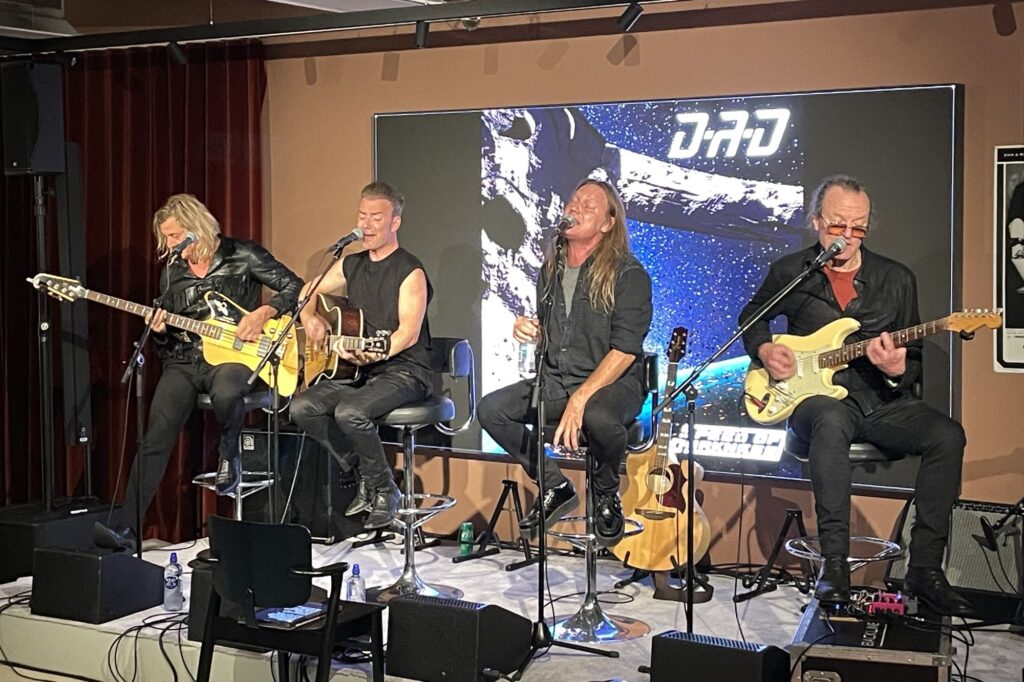
Both of you guys have unique playing styles, I would say, in rock ‘n’ roll music. Laust, you use a different style with your left hand, and Stig, you use most of the time only two strings. Is it a thing for you to be a little bit unique?
Laust: I think it just kind of happened, at least for me. I grew up listening to a lot of jazz drumming and jazz music, and all of them were having the jazz technique on the left hand, so of course I had to do that as well. I thought it looked so cool, so I just had to learn that. And then I started playing rock ‘n’ roll later on, and it was like, “Well, this is the way I play.”. And it looks good, I think. So don’t change a winner, like Stig said earlier.
Stig: And I’m such a bad musician, so I had to make myself heard, with two strings, and crazy basses, and outfits, and set myself on fire, to get attention.
Laust: (Laughs) Yeah, just to be seen.
When you’re not playing live on stage, do you usually use four strings, like when you play at home or practicing?
Stig: When I walk around naked at home, I play four strings. No, I actually just bought a five-string bass, and I don’t know what to use the D-string for. But hopefully I’ll learn along the way. It’s a very cool one. (Stig shows a photo.) He’s called MonoNeon. He’s been playing with Prince. Look at that one. Isn’t it nice?
Laust: So is the low string on top?
Stig: Yes, it has a D-string, so you can play I Want What She’s Got.
And will you start playing that song again?
Laust: Yeah, it’s taken a break as well. But it’s been a real classic in the set for many years. So now it’s just hmm. But we’re gonna bring it back of course.
About your playing style, Laust. Do you think that that playing style will eventually vanish? Are there any younger drummers that use that style anymore, except for in jazz?
Laust: I don’t know. I mean, I think the most important thing is to find your own way of playing. Whatever that involves, you should just go ahead and do it. It doesn’t really matter if it’s old or new. Just go ahead and find your own way of playing, and that’s the most important thing, I think. The young people, I think they are amazing musicians, so something great is gonna come along, I’m sure.
Have you, at any point, in D-A-D, felt a little bit constrained just by holding the drumstick the other way?
Laust: No, not at all. That’s fine. I mean, I can really get it to snap with the left hand, so it’s not a problem.
Stig: When Laust started in the band, we couldn’t go public with who was going to play drums, so we just released a picture on the internet, with his hand holding the sticks, and some fan wrote, “Is it Laust Sonne?”. So he knew it from just the hands. I was like, “Whoa.”.
When you play your so-called drum solo on stage, it’s kind of different. It’s like Jesper is talking to the audience and telling everyone what to do. Why don’t you just pound it away like on a regular drum solo?
Laust: I think a drum solo with just the drums doesn’t really make sense. I wanna be part of the music while I’m playing drums. So I like it better like this, when it’s part of a song, and I have a couple of bars, and then we play the song again, and I have a couple of bars. It’s more musical for me. I hate those bands where the drummer has, like, half an hour, and the rest of the band go off the stage. It’s not really music to me. It’s just banging on drums.
By Tobbe – Published October 11th, 2024
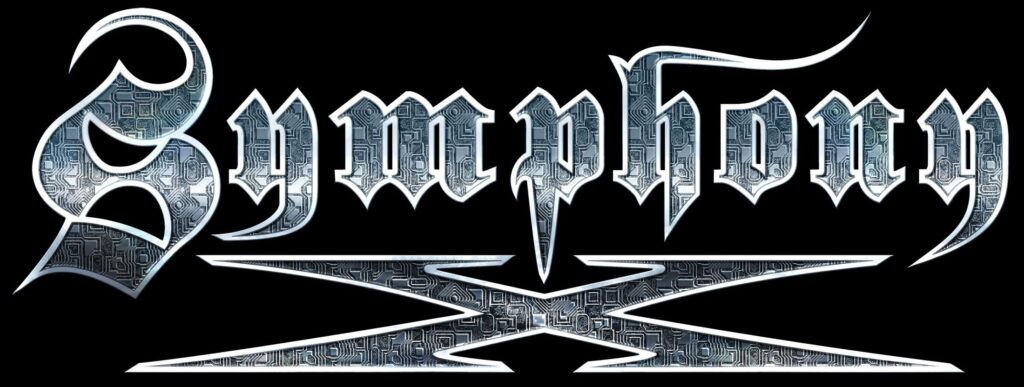
Metal Covenant talked with progressive metallers Symphony X’s guitarist Michael Romeo before the band’s show in Stockholm in late September.
To no surprise, I’m gonna mention that it was nine years ago since your last record, Underworld, was out. So it’s been a long time. What’s been going on really in the band for such a long time to not get an album out?
It’s been a lot of things. You know, back in the day we could do a record, and we would get royalties, ‘cause people would actually buy a product. And we could take a year, or two, whatever we’d need to get a record done. Concentrate only on the record, the record’s done, we go tour, and money still continues so we can survive. And then over time, less and less royalties come in, and then, you know, there is just no money in making records. So we have to tour to kind of, you know, stay afloat, and work on the record in between. I mean, it’s just what it is. And it takes us a long time anyway. You know, it takes me a long time. Especially now, ‘cause you’re trying to do something really good. You’re trying to do something different a little bit. So you’re trying to be, you know, creatively doing more. Doing something as good, or better than the last time. You’re trying to up it every time. So now, before this tour, I was working on stuff. You know, a lot of ideas, a lot of stuff, and then we have to stop. And we come and tour, and this is great, then we go back home, and I’m like, “Shit. Where was I? What was I doing?”. And then, “Oh, we have to go and tour again.”. So it’s just the starting and stopping. That’s tough. You know, it’s tough. I’m not complaining, but it’s just that’s why. And I mean, a lot did happen too after we did the last record. Russ was in the accident. And then there was a time we weren’t even sure what was gonna happen. You know, I did a solo record. Russ needed some time. You know, to himself, going through something like that. And then we had Covid. So it’s all these things, that we weren’t able to be together and do stuff. So, whenever it was, 2022 maybe, we were just like, “Okay. Let’s get back. Let’s feel like a band again, and start playing, and work on the record.”, and then we were like, “Okay. We can’t just take off two years and write a record now. We’re gonna have to tour, work a little, tour, work a little.”. As I said, it takes a lot. It’s not just like, “Oh, you don’t feel like doing a record?”. It’s like, “I love doing records, but it’s just all the circumstances.”.
And that was a lot of circumstances. It was, like, five things adding up to the whole thing.
Yeah, there’s a lot of things. There’s a lot of shit going on, so. You know, you do the best you can. I mean, definitely there’s plenty of stuff, and now it’s just a matter of kind of organizing it. Just like all the records, I’ll put a basic song idea together, start putting the pieces together, and then we kind of get together, and fine-tune, and try some things. But yeah, it just takes time. You know, it just takes time to get just to that point, where it’s like, “Okay, here’s enough good stuff to at least get started.”. And we know. Believe me, man. We know.
A lot of artists say that an album is a snapshot of their life, but when you’re writing in, like, different periods, do you have that snapshot, or does it become, don’t get me wrong now, more like a mishmash of stuff coming together?
No, because usually whenever the record gets done, however long it takes, right at the beginning we have an idea of what it’s gonna be. So we won’t really change. So, Paradise Lost, it was like, “Okay, Paradise Lost: It’s gonna be a little darker, it’s gonna be a little heavier, maybe some different things with the orchestra and the choir.”. This kind of thing. Yeah, it might take a while to write all that stuff, but it’s not gonna be trendy ‘cause there’s something different the next year, you know what I mean? It’s like, “That’s what we set out to do, and as long as it takes, that will be the thing.”. You know, like you said, it’s not like a snapshot. It’s like, “Okay. Here is the movie we’re making. It’s gonna take this much time to do it, but it’s not gonna change next week because…”, you know, I don’t know, whatever. The Barbie movie is a big thing, but we’re not gonna do a Barbie record. You know what I’m saying? We do what we do.
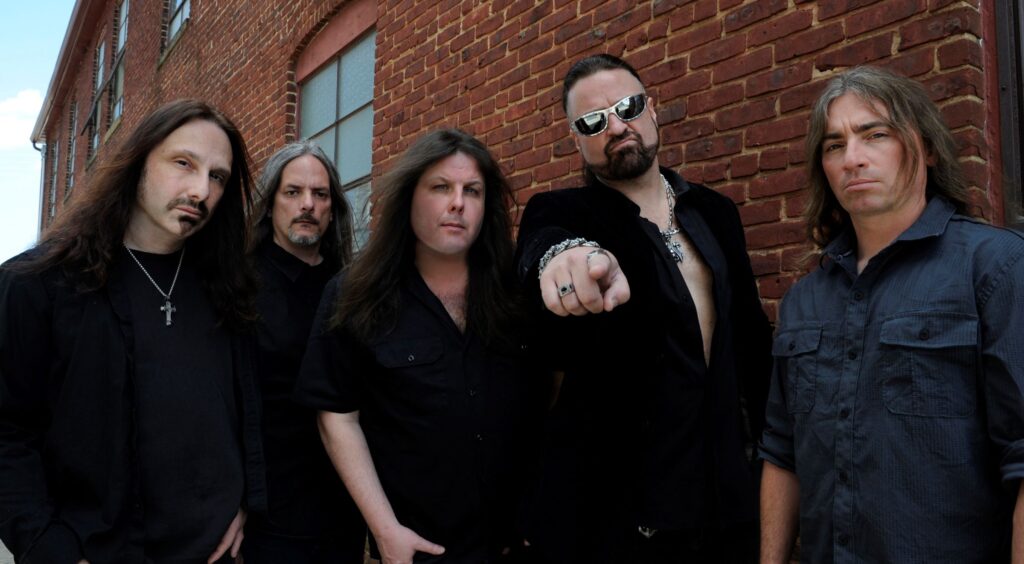
You did your first six records in eight years, and does it feel, somewhere in your heart, that you’re kind of less productive nowadays, and are a little bit sad about that?
No. I mean, I’m productive. I’m super-productive, ‘cause we have to do other things too. You know, I worked on some movies, I worked on some TV stuff. You know, I can still be creative. It’s just that the band stuff takes the most amount of time creativity-wise, but the money that used to be there to help us along isn’t really there anymore. So like, at some point, you know, “Somebody’s got to do this on the side, or do that on the side.”. That’s the real thing. I mean, and even just talking about working on the new thing… You know, just in basic ideas, I have, like, three hours of stuff, so it’s not like I’m having trouble. It’s not the creative part now. It’s more the organization of it. You know, actually taking these ideas, and getting a skeleton of a song, and then getting with the guys, and be like, “Hey, here’s my thing.”. That’s where the time thing comes. And now I have so much stuff. It’s like, “It’s gonna take longer to sit through everything.”. Creatively, yeah, we’re all good. It’s just, like I said, it takes a little longer to be creative. I mean, we’re all getting older. You know, trying to get those ideas, and you want it to be really good, and then there’s the time and the money thing. So just trying to balance all these things is tough. And yeah, we are a little older, so sometimes the brain isn’t as snappy as it used to be. But it still works, you know.
But now, with such a long span between two records, will you personally set an immense pressure on yourself to come out with the best stuff you ever possibly can?
Yeah, there is that too. Throw that into the circumstances too. That’s like, “Oh, my God. All right.”. I mean, but I know it will be good. I mean, we all know. We know it will be good, because every time, no matter what, we don’t try to write one single and then a bunch of crap. You know, we never try to have filler. Every song gets the same amount of attention. So this will be the same, and fingers crossed, it’ll be good, you know. Ah, it’ll be. It’ll be fine.
Would you even dare to predict a release date for the coming record?
I’m not gonna say anything now. (Pause) Yeah, I mean, like, we’re trying to get it done by the end of next year, you know. Like give ourselves this whole year, because we’re still gonna have to do some touring, and do some other things. But yeah, we’re just trying to find these long spans of time where the work can get done. So maybe next year we might not tour as much, but that’s good, because then the time can go into the record. Like I said, it’s just not like it used to be, when we could take two years and work on nothing but the record, and still survive. But times are different, man. People don’t buy music. It’s terrible.
Do you guys have a record deal at this point?
Yeah, it’s on Nuclear Blast. I mean, everything’s in place. Everything’s the same. Yeah, like I said, there was a lot of these circumstances that led to more and more time.
And what are those guys telling you when they have to wait for such a long time to get some new stuff delivered?
They know. They know it’ll be good. They don’t really bother us, you know. I mean, and everybody knows. Like, the whole Covid thing. Just everything went to shit, you know. So it’s like, “Okay, try to recover.”. Most bands, you know, had to get right back out playing. You know, all the guys I knew had to get right back to work, ‘cause touring is really the only income. So you have two years of doing nothing. I mean, a lot of guys I know quit. A lot of bands went away. Like we said, it’s a lot of circumstances. A lot of things.
And you’re not worried that people are gonna forget about you?
If they forget about us, they forget about us; I don’t care. I mean, we still care. And a lot of young people are showing up on our shows too. You know, they just appreciate what we do. We’re not, like, a gimmick thing, you know. Slow and steady wins the race. That’s kind of us. Just slow and steady. You know, maybe now a little slower, but. Yeah, I’m not really worried about it. We were just on a tour in the States too, and it was great. Here, in Europe, some of these places are fantastic. Everything’s been fantastic. Do people want a record? Absolutely. I mean, we want a record too. But it just felt like just normal times, “Hey. Here we are.”. We’re coming back to say hi to everybody, and things are good.
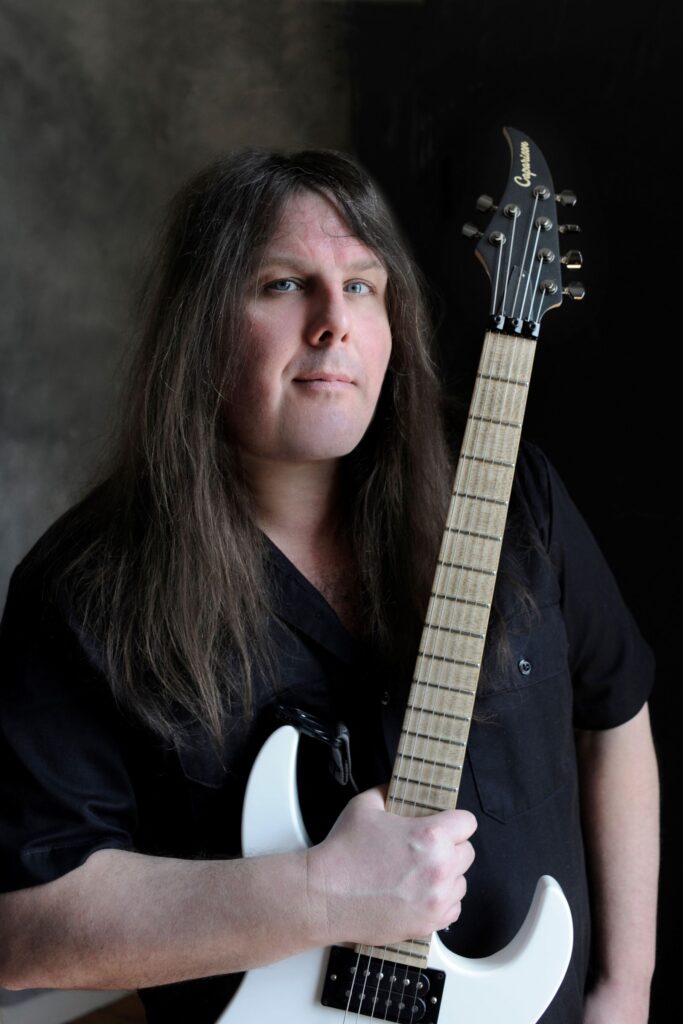
I see Symphony X as a progressive heavy metal band, which I see as an experimental genre, and as a songwriter, is it sometimes hard to separate experimental stuff, such as doing new things, from a good melody?
No, melody is king. Melody is king, melody is the thing. I mean, you could still have some progressive things underneath supporting the melody, like Rush. You know, it’s a good melody, and yeah, it’s prog, or it’s in seven, or different timing, but there’s always a melody. I was always more about that. I mean, maybe not in the beginning, ‘cause when you’re young you just wanna noodle and do stuff, but over the time you start to mature, and it’s like, “Hey, the melody really is the forefront.”. Yeah, the melody can maybe sit back here, and here comes the guitar, or some other kind of feature, but there’s still melody in it. You know, it’s not a bunch of craziness that doesn’t make sense. There’s always got to be some kind of melody. A riff is a melody, a vocal of course, even piano lines. It’s all that, yeah. Melody, man. The melody is the thing.
Hypothetically, if you would try to develop your music style a lot further, and go really into progressive stuff, or something like that, would that mean that you would lose a little bit of your identity?
I mean, it depends on how much you’re talking, you know what I mean? Yeah, I mean, if we were gonna do extreme death metal, or extremely progressive, you know, that’s so complicated, then it’s like, “It might still be us, but that’s not really us.”. It’s like us: yeah, it can be progressive, or it can be really heavy, but it will always settle back into a melody, or it will develop into a new part, or the arrangement will go to different places. It’ll just be more to it. I mean, you know, “Maybe there could be some orchestral here.”, and if it goes that way, that’s okay too. You know, within reason. Yeah, you could make anything as extreme as you want, but is it a good song then? I don’t think. If you go too extreme, you know. Or maybe I’m wrong; I don’t know. But yeah, for me, whatever sounds good, you know. Whatever sounds good, if you can push a little more, cool. If it doesn’t need to be pushed, it’s like, “Leave it.”, you know.
The reason I asked this question is that a lot of bands that have made, like, seven, eight, or nine records, tend to kind of do an experimental record that sounds kind of different than the original stuff.
Yeah, I get you. I mean, I don’t think we would ever have to do that, because there is so much that you could do now. Yeah, overall, like over the time, maybe we got a little heavier. Maybe the production was a little heavier nowadays. You know, when I listen to our stuff, I know where I’m coming from. You know, with Sabbath, and Priest, and Maiden, Ozzy, and all this. The stuff I grew up with. And Rush, and Yes, and Kansas. I mean, I can still hear that. And you could just do so much with that, you know what I mean? There’s so much there to experiment already. You don’t have to go off the deep end experimenting. You have so many tools already. You don’t need to go and buy a whole new toolset, you know. We’ve got plenty of paint right here. We don’t have to go and buy the 320-pack of colors. Which might be fun for a section or a song, but then you’re changing what you do, you know.
All you guys have been doing solo stuff, or have actual bands, like Silent Assassins, Adrenaline Mob, your solo stuff, Pinnella’s solo stuff, and a bunch more. So, what’s the best thing with doing that thing instead of doing Symphony X?
Um, I mean, for me personally, it’s not like I had to do some crazy thing that was lacking. Like I said, it was like, you know, Russ had the accident, and we weren’t sure what was happening with the band. I always liked writing. I mean, I like being creative. So it was like, “Okay, it might be a good time to make a solo record, since the band is kind of on hiatus.”. Yeah, there’s some electronic things on there, and more cinematic, and I can, like you said, maybe experiment a little. But it’s not like a country record, you know what I’m saying? And the same with the other guys too. You know, it’s like, “Yeah, maybe kind of just do something on the side.”. That kind of thing. But it’s always on the side. It’s always on the side.
So it’s kind of easy for you to separate a song from your solo stuff from a Symphony X song?
Yeah, I mean, the solo thing just happened in that gap. Again, since it was such a long period of time, you know, between the whole band on hiatus, and then you have Covid, and going back to what we were saying about just writing a record and having that time, it’s like, “Oh, man. Just churning out ideas.”. And I’m like, “Okay, well, this is all solo stuff.”, ‘cause that was how I was writing it. And now, 2022 come around: the band, “We’re gonna be touring, and get our shit together, and be back out there, and, “Okay, now, work on that stuff.”. So it was just a little period of time, you know. I mean, is it similar? Yeah, kind of. A little bit here and there, ‘cause it’s me, you know. Did I try to do something different? You know, dubstep. It’s like, “Yeah. Fuck it!”. You know, I don’t care. Just having fun.
So it’s not just a little bit tempting to keep the best stuff for your own solo stuff?
Oh, God, no. The other way around. And again, all that stuff was just written for a solo record. And when I knew it was done, I’m like, “That’s it.”. Now I’m back, you know. Yeah, if anything, it would be the other way around. It would be stupid to take something great, that could be for the band, and put it on a solo record. That would be stupid.
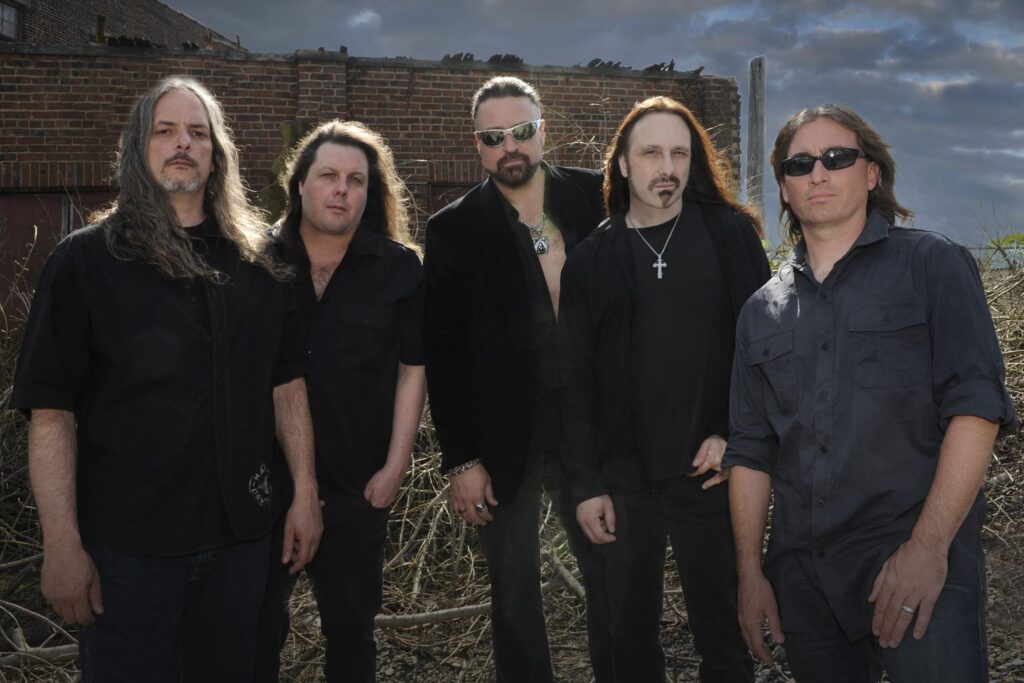
You guys have had the same lineup for about 25 years now. So was it kind of a relieving situation to not meet so much during the Covid and in different periods since the last record?
I mean, we all talk all the time, you know. And we are all kind of separated. Like, LePond is in Florida, Jason is in Albuquerque. So we are kind of spaced. The only people in New Jersey are me, Pinnella, and Russ, and even then we’re kind of a little bit aways from each other. So yeah, the Covid was weird. You know, just not be able to just go to the rehearsal place. Things like that. It was weird, man. It was a weird time. But do we need it? No. Because, like you said, we’ve been together for so long. Like, you know everybody’s thing. It’s like, “Oh, he’s in a bad mood today. All right, let’s go over here.”. (Laughs) It’s like a family, you know.
Have you ever felt frustration about never getting that big break, that could take you to the masses, instead of being just a known heavy metal band?
No, not really. I mean, it would be great. It would be great, you know. Like Metallica. It’d be great. But I mean, I’m knowing what we do. And even the guys in the band, everyone likes different things, you know. So like, yeah, there is a little bit of this, like, classical element. There is Russ’ vocals; very diverse. Soulful sometimes. The guitar, yeah it’s very heavy. A lot of virtuosic stuff. Yeah, it’s metal, but it’s prog. It’s just a lot of different things, and knowing that early on, it’s like, “You know, well, this is what we do.”. You know, could this be the biggest thing ever? Ah, maybe. I mean, or you can buy a lottery ticket. But I think we all like doing what we do, you know. And has it grown over time? Absolutely, absolutely. Some of the shows we’ve done, like, in the last couple of years, have been really great. You know, just down to South America and playing with Kiss. You know, the soccer stadium. I would have never thought that 20 years ago. So yeah, do I wish, you know, things were much bigger? Of course. But do I regret doing what we do? No. Because what we do is real. Like, we could, I don’t know, do a gimmick, and, I don’t know, put on fucking silly hats, or something. (Laughs) I think for us it’s like, “We’re musician guys. Could we be in the middle? Yeah. – And still do what we do, and like it? Yeah.”.
But think of how many guitarists, and vocalists, and band members, and songwriters there are in this world, then I would say that you have done pretty well. You’re in, like, the top little percentage, definitely.
I’m not complaining. That’s why I’m not complaining. Yeah, you know, it’s like, “Do you wish you hit the lottery for a billion dollars?”. Of course you do. But if you win, I don’t know, a couple of million, are you gonna complain? No. But I mean, it’s not even just about money. Just about the status. Yeah, would it be great to be that? Oh yeah, sure. Be much bigger? Sure. But again, we’re good. And we do what we want, and we all get along, and things are always smooth, so, you know, it could be a lot worse.
When people, in the future, will look back on the band Symphony X, what do you want them to see?
I mean, the same thing that they see now, you know. The band that, you know, we really cared about what we did. We always tried to put our best stuff forward. Yeah, I mean, what else can you really ask for? I mean, with our peers, and all our friends, you know, in the music business, like all of us, mutual respect. You know what I mean? We all have that. I mean, I have that for all the guys I know. And I know we have that. That, and just the integrity of the music.
By Tobbe – Published October 8th, 2024